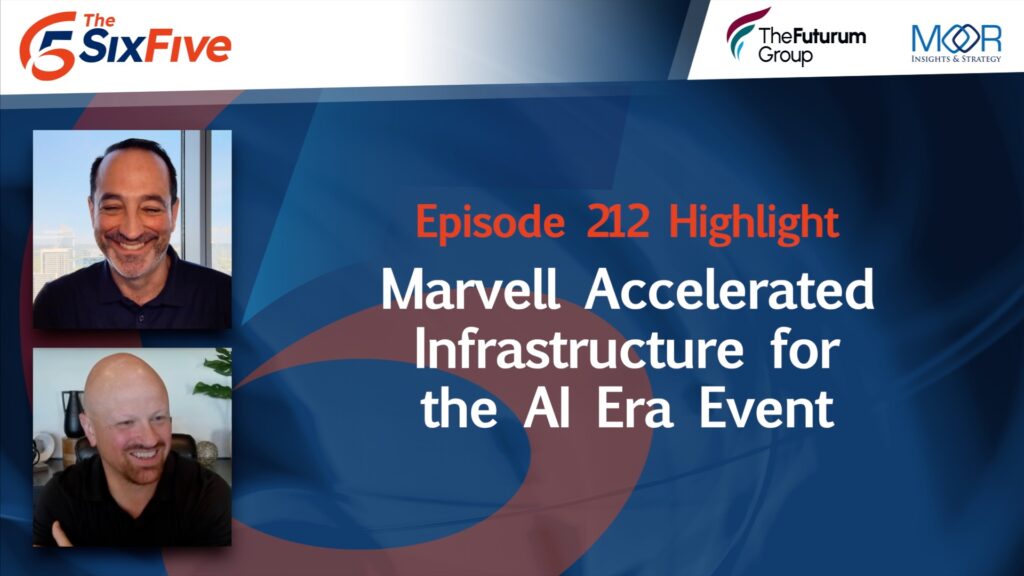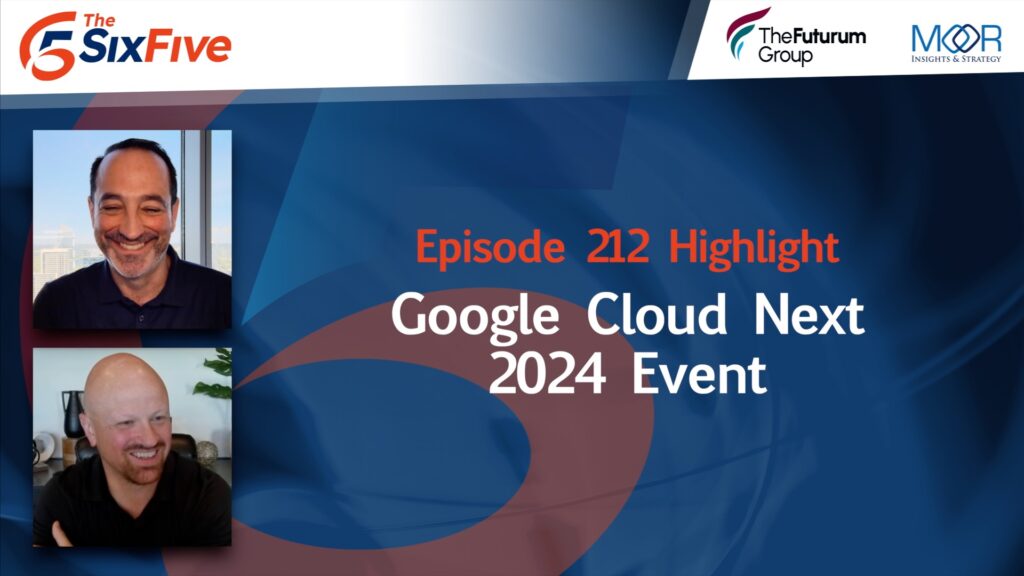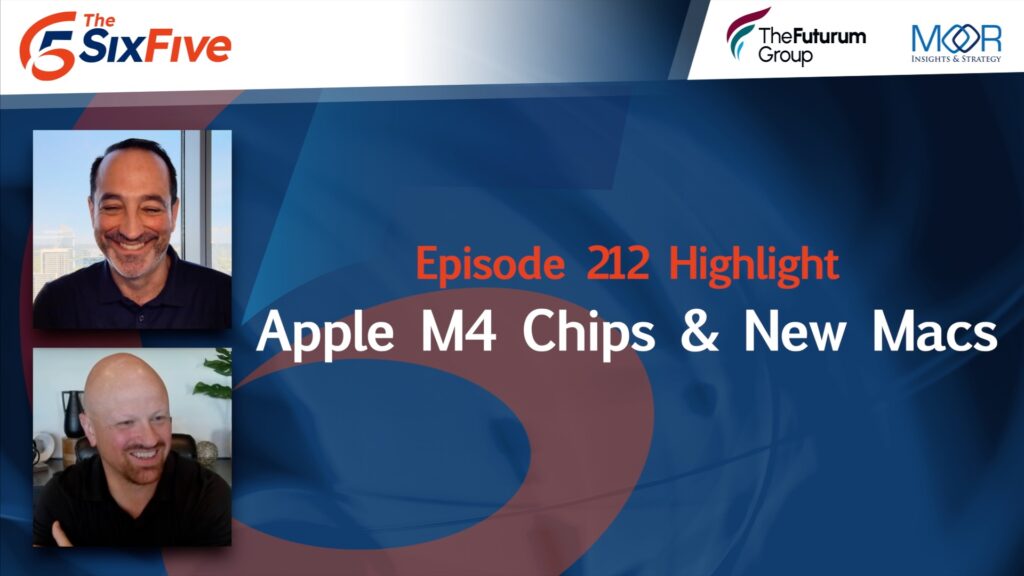For this vignette of a recent episode of The 5G Factor, part of the Futurum Tech Webcast, analysts Ron Westfall and Shelly Kramer assess T-Mobile’s fulfillment of its mission to source 100% of its total electricity usage with renewable energy (RE100) by the end of 2021. T-Mobile attained this milestone by coordinating a renewable energy strategy that encompassed eight virtual power agreements, 19 retail agreements, one Green Direct program, and unbundled Renewable Energy Certificates that support projects nationwide.
Their conversation highlighted:
- How T -Mobile is contracting nine wind and solar farm projects to provide it with approximately 3.4 million MWh (megawatt hour) of clean energy annually, which is enough equivalent energy to deliver electricity to over 313,000 homes per year.
- T-Mobile’s RE100 accomplishment is sanctioned by the Climate Group and has also led Green America’s Wireless Scorecard three years consecutively, and the company recently received a top grade in the 2021 CDP Climate Change questionnaire, providing immediate clean energy credibility across the mobile ecosystem.
- In addition, T-Mobile supports 37 community solar projects, which represent greening local energy grids with more than 2.1 million MWh over 25 years for Maine, Massachusetts, Minnesota, New York, and Oregon.
- T-Mobile’s RE100 milestone advancing MWh metrics in the evaluation of mobile operators, augmenting traditional speeds and feeds considerations such as Mbps for connections and MB for storage.
Ron and Shelly believe T-Mobile RE100 achievement puts more competitive pressure on key rivals AT&T and Verizon to up their clean energy credentials as well as any operator with mobile service aspirations. They believe the RE100 feat shows T-Mobile is once again outflanking rivals in winning the 5G race in 2022.
Watch here:
Or listen here:
You can watch to the full episode here:
Or stream the full episode here:
If you’re watching the 5G space, be sure and subscribe to our YouTube channel to catch the show, or find the podcast in your favorite streaming channel and subscribe. You won’t be disappointed!
Don’t Miss An Episode – Subscribe Below:
Disclaimer: The Futurum Tech Webcast is for information and entertainment purposes only. Over the course of this webcast, we may talk about companies that are publicly traded and we may even reference that fact and their equity share price, but please do not take anything that we say as a recommendation about what you should do with your investment dollars. We are not investment advisors and we do not ask that you treat us as such.
Transcript:
Shelly Kramer: Since we’re on the topic of T-Mobile, I ran across Opensignal’s January 2020 report on 5G user experience. According to that report, T-Mobile is cooking with gas and they have a significant lead over both Verizon and AT&T in both 5G performance and coverage in the United States. I will say that it is important to note here that based on our conversation earlier about C-band coverage and that’s at airports and that sort of thing provided by AT&T and Verizon, T-Mobile isn’t playing in that space. The C-band deployments by those companies could impact this report moving forward. But for now things look really great on the T-Mobile front. I think that what I looked at is that T-Mobile has won in the 5G download speed for the fifth year in a row, fifth time in a row, going from an average of 118.7 mbps to 150. That’s pretty impressive, right? That’s what everybody wants, speed, speed and more of it. In upload speeds, T-Mobile was also ahead of the pack at 17.9, although Verizon was creeping right along at 14.1.
So there were some other key metrics mentioned in the report. I will include that as part of our show notes here. But basically, T-Mobile is doing a terrific job as it relates to great user experiences and speeds and that sort of thing.
Ron, did you get a chance to look at that report by any chance?
Ron Westfall: Oh, yeah. I think it definitely demonstrates that T-Mobile has been very adept at executing its 5G strategy, certainly nationwide, one here in the US. Clearly, the speed tests show that they definitely made some of the right bets in terms of their spectrum priorities and I think that came across in the recent C-band auctions.
I think it’s also tying in with other initiatives that are also critically important to the success of T-Mobile or any mobile operator let alone the overall 5G ecosystem. Specifically speaking of having marketing momentum, T-Mobile announced that they fulfilled their renewable energy goals, the RE100 objective. That is the entire 5G operations are now being run on renewable energy and that includes agreements with 19 retailers, eight virtual power agreements and so forth.
So the net result is that there are now 3.4 megawatt hours. So now we have to talk megawatt hours more and more in addition to megahertz and megabits and so forth. But again, 3.4 megawatt hours that includes energy grids across states like Maine and Massachusetts, Minnesota, New York and Oregon. As a result, T-Mobile has landed again the Green America Wireless Scoreboard top score amongst mobile operators.
So this is clearly a feather in the cap that they’re really combining the best of both worlds delivering, on the one hand the best performance and speeds, but also doing it in a very energy-conscious way that is definitely executing on the sustained middle league goals that are so important and are integral to any organization’s ESG goals. So this is I think a welcome news the fact that T-Mobile is executing on these two vital fronts.
Shelly Kramer: Yeah, and it would be prudent of me to mention here I think as we’re on the topic of sustainability and ESG initiatives. Our team here at Futurum is really passionate about all things, ESG and actually DEI as well. We believe that we have companies of all sizes who have planted a flag, especially in either one of these spaces as it relates to DEI initiatives, as it relates to ESG initiatives. We believe specific to ESG that this is going to become increasingly important as time goes by. Just as you know, we saw organizations embrace digital transformation journeys and initiatives, right? Some work rapidly than others. But all of a sudden we went from a space where our team was working, actually working with the clients on digital transformation initiatives and journeys before the term digital transformation was even coined and widely used, so we’ve been kind of elbows deep in that space.
But we think that ESG is going to be increasingly important, as important by comparison as digital transformation focuses are. Because this is the path forward, this is what consumers care about, and the challenge here for organizations is that we’ve had so many companies plant their flag. I mentioned this already, plant their flag and that by 2025 or 2030, we’ll be here 2040. Now what they’re doing is saying, “Okay, well, we’ve said this. How are we going to get there or how are we going to measure this meaningfully?”
So there are some really interesting times ahead as it relates to that. We have a new media property launching here in about a week called good equals progress, which is focused on all things, ESG and DEI. So we will invite you to be a part of that launch with us as that property launches. But no, we’re going to be talking about that quite a bit moving forward and good on you. T-Mobile for your efforts in the sustainability, in the sustainability race that’s awesome, that’s awesome news
Author Information
Ron is an experienced, customer-focused research expert and analyst, with over 20 years of experience in the digital and IT transformation markets, working with businesses to drive consistent revenue and sales growth.
He is a recognized authority at tracking the evolution of and identifying the key disruptive trends within the service enablement ecosystem, including a wide range of topics across software and services, infrastructure, 5G communications, Internet of Things (IoT), Artificial Intelligence (AI), analytics, security, cloud computing, revenue management, and regulatory issues.
Prior to his work with The Futurum Group, Ron worked with GlobalData Technology creating syndicated and custom research across a wide variety of technical fields. His work with Current Analysis focused on the broadband and service provider infrastructure markets.
Ron holds a Master of Arts in Public Policy from University of Nevada — Las Vegas and a Bachelor of Arts in political science/government from William and Mary.













